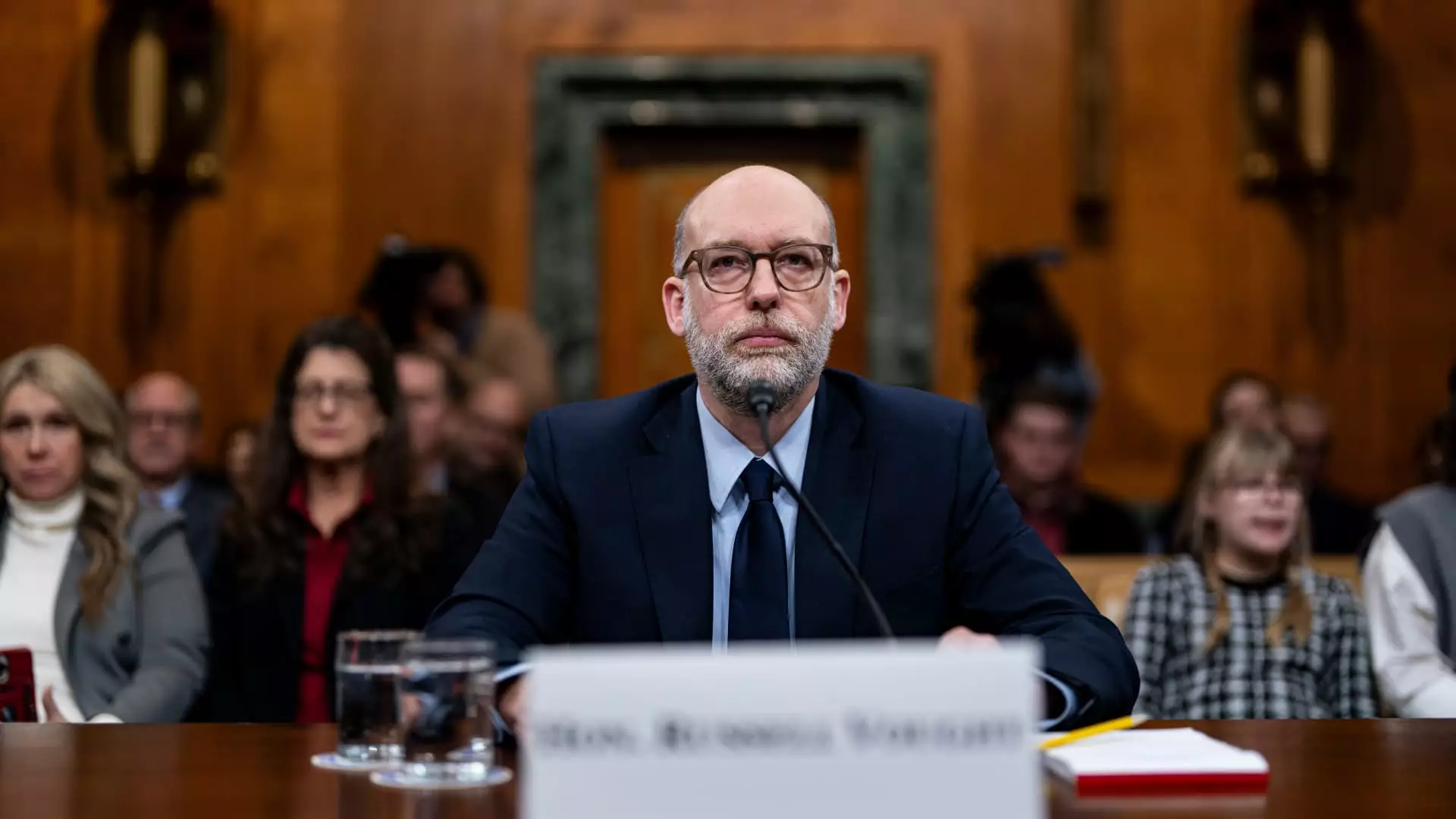In a politically charged session, the U.S. Senate confirmed Russell Vought as the director of the Office of Management and Budget (OMB) under President Donald Trump. The 53-47 vote underscores a significant ideological divide, with Republican senators welcoming Vought’s hardline conservative views while Democrats expressed deep concerns regarding his approach to federal funding and government oversight. As a nominee who had previously led the OMB during Trump’s first term, Vought’s confirmation raises critical questions about the administration’s future fiscal policies in a landscape already fraught with division.
Vought’s critical stance towards the Impoundment Control Act of 1974 is perhaps his most contentious viewpoint. By advocating that the legislation, which prohibits presidents from bypassing funded allocations approved by Congress, is unconstitutional, Vought draws attention to the potential restructuring of executive powers in budgetary matters. This call for re-evaluating a federal law generates apprehension among lawmakers across the aisle, with even some Republicans expressing skepticism about the long-term ramifications of such a stance. Vought’s willingness to challenge established legal frameworks suggests an ambitious approach that could reshape government operations, prompting scrutiny over the implications for executive-branch autonomy.
Vought’s tenure commenced amidst a tumultuous budgetary climate marked by the Trump administration’s controversial decisions. Not long before Vought’s confirmation, the White House Budget Office initiated a temporary freeze on substantial federal grants and loans, an action criticized for jeopardizing essential services. The inability to secure prompt funding has ramifications for programs focused on diversity and equity, raising alarms about the administration’s broader commitment to these issues. Although a federal judge intervened to halt the freeze, the mere act of attempting to block these funds signals a willingness to override norms of fiscal governance in pursuit of partisan objectives.
Senate Democrats actively sought to connect Vought’s confirmation with a slew of policy initiatives from the Trump administration that they labeled extreme. The hard-right Project 2025 initiative features prominently in these allegations, with critics accusing Vought of being complicit in policies that target not just budgetary allocations but the fundamental structure of government agencies. Key figures, including Senate Democratic leader Chuck Schumer, have framed Vought as a symbolic representation of broader conservative efforts to diminish the roles of entities such as the U.S. Agency for International Development and the Justice Department. This rhetoric illustrates the palpable tension between different governance philosophies, each camp contending that theirs best serves the American populace.
In stark contrast, Republican senators positioned Vought as a champion of fiscal responsibility and effective governmental management. During the confirmation process, Senate Majority Leader John Thune underscored Vought’s commitment to curbing wasteful spending, casting him as a pivotal figure in the quest for efficiency within the federal budget. This belief in Vought’s potential to streamline operations resonates among conservatives who argue that excessive governmental expenditure undermines economic stability.
The confirmation of Russell Vought marks a decisive moment in the intersection of governance, budgetary management, and ideological battles in the United States. As he takes on the mantle of budget director, the effects of his confirmation are likely to reverberate across a range of policies and funding decisions in the foreseeable future. With the ability to redefine the role of fiscal governance fundamentally, Vought’s tenure opens up a contentious dialogue about the balance of power between legislative intent and executive action in the American political landscape.


Leave a Reply